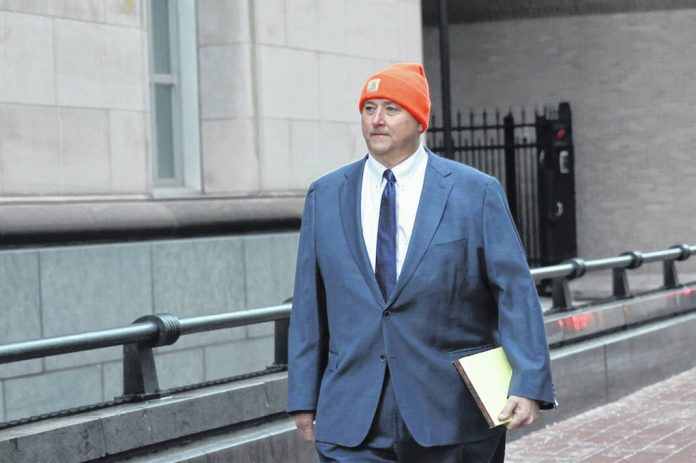COLUMBUS, Ohio – Even as he spent the back half of 2023 incarcerated, ex-Ohio House Speaker Larry Householder’s vestigial political campaign spent $112,000 in donor funds on his legal bills.
The Ohio Elections Commission has long held that political campaigns cannot use campaign funds to their criminal defense attorneys. They can, however, use the money to defend themselves in election-specific cases considered by the OEC.
The payments, reflected in a new campaign finance report from Householder, went to Scott Pullins, an attorney and Republican operative who has advised Householder legally and politically over the years. Pullins said the money covers his work representing Householder in multiple OEC cases filed against him that generally mirror the criminal charges.
In March 2023, a jury convicted Householder of leading a racketeering conspiracy out of the House Speaker’s office. Trial evidence showed that FirstEnergy Corp. and its officials paid about $60 million into an account secretly controlled by Householder. Householder used the funds to build a political machine that thrust him into one of the most powerful roles in state government and also paid down his personal and legal debts. In exchange, he championed legislation into passage that charged ratepayers to bail out two nuclear plants operated by a company subsidiary. Prosecutors said the legislation was worth about $1.3 billion to FirstEnergy, which admitted to the accusations against it in a deal with federal prosecutors.
U.S. District Judge Timothy Black sentenced Householder to 20 years in prison. Householder is in the process of mounting an appeal.
One of the OEC cases alleges campaign finance violations against Householder that roughly track with the charges brought by prosecutors. The other focuses on his use of campaign funds to pay his criminal defenses.
Campaign finance records show that after his arrest, Householder’s campaign paid more than $1.2 million to two law firms who defended him during his criminal trial, which spanned over two months in 2023. However, a $300,000 payment to one of the firms in 2022 was refunded the day after it was sent.
Pullins said in an interview that while a jury convicted Householder of a racketeering charge (predicated on multiple other crimes like bribery and money laundering), it didn’t make any finding on campaign finance violations. He said Householder believes, and he agrees, that Householder didn’t violate any campaign finance rules.
When it comes to legal spending, Pullins said he hopes to convince the OEC that Ohio law allows for a looser approach to campaign spending on criminal defenses. He said a public official or candidate should be allowed to use campaign funds to cover their legal defense for accusations that connect with their official or campaign conduct, like allegations of taking a bribe. But he said such officials should not be able to use the money for conduct that has nothing to do with politics, like a DUI.
Philip Richter, executive director of the Ohio Elections Commission, said he expects there will be hearings on the two Householder cases in mid-May or mid-June but those dates are not yet finalized.
While he said it’s possible the OEC might soften its position on such legal spending, it’s not likely.
“It’s possible, but I don’t see it to be honest with you,” he said. “But make a strong enough argument I guess, maybe.”
Meanwhile, Householder has filed notice of an intent to appeal his criminal conviction. The court recently accepted Householder’s attorneys’ requests to delay their deadline to submit arguments. Householder is currently serving his sentence in a federal prison in Columbiana County.







